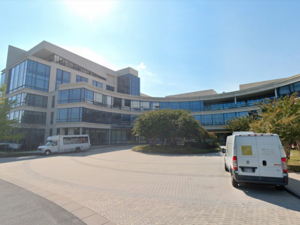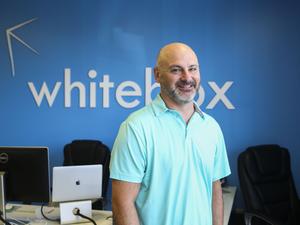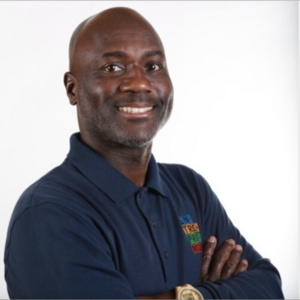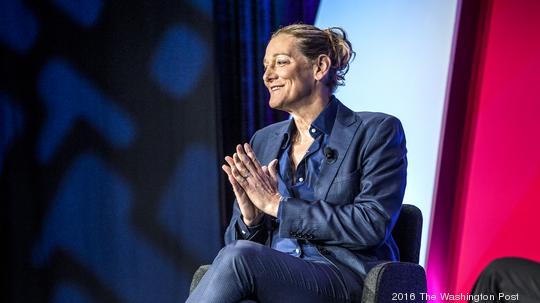
The first successful transplant of a pig heart into a human has grabbed headlines — and accelerates the path forward for the Maryland biotech behind that genetically modified organ.
The surgery, performed Friday at the University of Maryland Medical Center in Baltimore, made patient David Bennett the first recipient of a heart developed by Blacksburg, Virginia's Revivicor Inc., a wholly owned subsidiary of Silver Spring’s United Therapeutics Corp. (NASDAQ: UTHR). It puts the company a step closer to supporting UT’s quest in solving the organ shortage crisis, said David Ayares, executive vice president and chief scientific officer of Revivicor.
“It’s absolutely huge — for the patient, for the field, for Revivicor, for the transplant future,” Ayares said in an interview Tuesday.
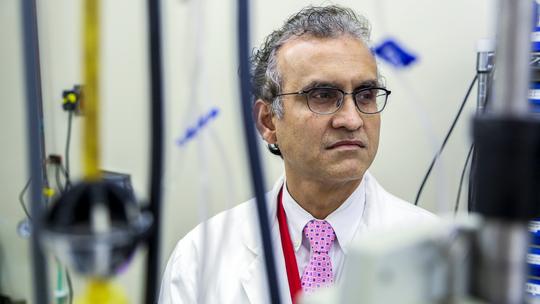
How it happened
The experimental operation at UMMC, in a patient with life-threatening heart disease who’d exhausted other options, came from existing work between Revivicor and the University of Maryland. The partners have been conducting nonhuman primate studies and testing hearts from the company’s genetically modified pigs for years, Ayares said. Not only has that work shown long-term survival of those hearts in baboons — also necessary to start human testing — but it opened the door to this very procedure.
Dr. Bartley Griffith, director of the hospital’s cardiac transplant program, “called us up and said, ‘I have this patient who’s going to die, and we think you have the technology that can save his life. Are you guys willing to approach the FDA for this emergency use?’” Ayares said. “And we were all in.”
So Revivicor sought a one-time emergency use authorization from regulators for the transplant, which the agency granted after it was “evaluated specifically in the context of David Bennett and his condition and his need,” Ayares said.
Bennett’s insurance covered “his traditional care” at the hospital, a UMMC spokesperson said in an email. “With respect to other services, UMMC has dedicated funds reserved for uses such as unique patient care needs and innovation. We will continue to partner with the University of Maryland School of Medicine to ensure the patient’s complex care needs for transplant and related services are met, in this unique circumstance,” the spokesperson said.
At this point, a hospital would need an existing relationship with Revivicor to get the green light for this type of procedure, Ayares said. In this case, he said, the FDA “was able to draw on regulatory submissions that we’d already made in the context, and with Maryland as our partner for our preclinical path.”
Revivicor also works with the University of Alabama at Birmingham and New York University, supplying pigs for preclinical research for its kidney program. That’s what led to the recent transplant of a pig kidney into a brain-dead patient whose family had granted consent for the experiment. And that provided “a significant amount of data on the kidney model,” Ayares said. They’re key relationships as the company continues with its preclinical work ahead of clinical trials.

The road ahead
Revivicor hopes to complete its preclinical studies in 2023 and start human clinical trials by the end of 2023, Ayares said. That’s necessary to ultimately receive regulatory approval.
It’s part of a larger push by United Therapeutics, which makes drugs for pulmonary arterial hypertension and end-stage lung diseases. In the U.S. alone, more than 121,600 people need organ transplants and many wait for years, according to the National Kidney Foundation. To that end, UT is simultaneously focusing on organ manufacturing and transplantation for people with those diseases and, potentially down the road, others, the company said.
United Therapeutics has spent years laying groundwork to break into xenotransplantation — the process of transplanting organs between species — to help boost the organ supply for people in need of transplants. That work is “probably the closest to human clinical use,” Ayares said. In addition, the Maryland company is developing a regenerative medicine strategy that involves removing pig cells from a pig lung and replacing them with human cells, as well as 3D-printing organ scaffolds for transplants.
While UT counts more than 1,000 employees, Revivicor’s team comprises 30. The parent company and its subsidiary could be initiating a hiring spree sometime this year or next, as certain revenue milestones are unlocked, according to the company. Revivicor is also building a facility in Montgomery County, Virginia, “to raise these genetically modified pigs in a very clean environment,” Ayares said. That future space, still in the design phase, would follow the opening of another facility in early 2022 to support its preclinical work.
UT’s stock was trading up 3.37% early afternoon Tuesday to $205.96 per share.
United Therapeutics changed its legal status in October to operate as a public benefit corporation and is led by CEO Martine Rothblatt.

